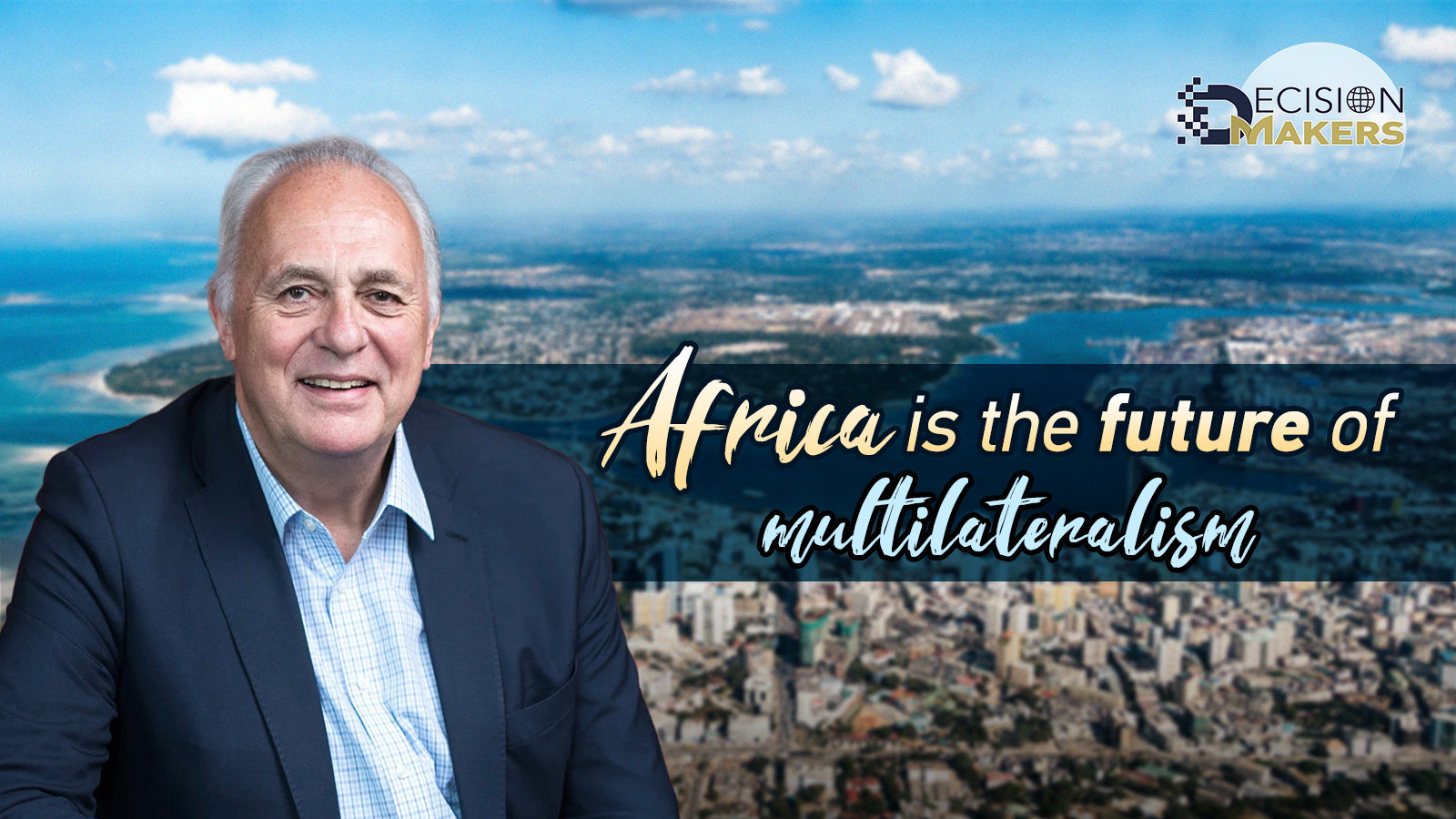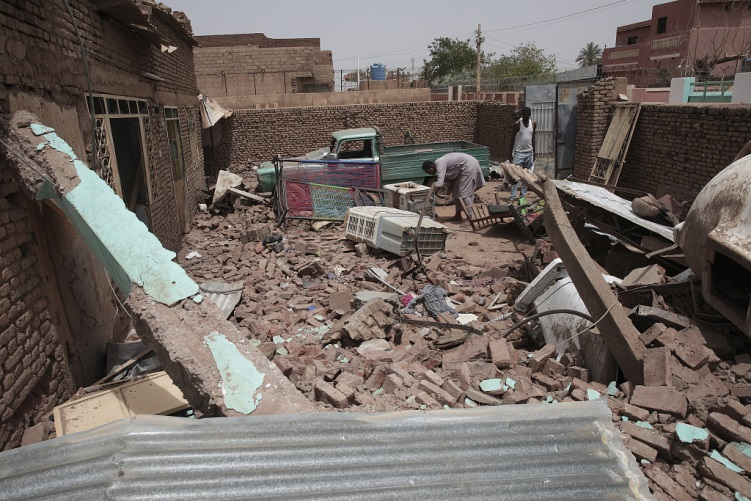
Editor's note: Decision Makers is a global platform for decision makers to share their insights on events shaping today's world. Mark Malloch-Brown, a former deputy United Nations secretary-general and co-chair of the UN Foundation, is the president of the Open Society Foundations.The article reflects the author's opinions and not necessarily the views of CGTN.
"We do not seem to have any common values on which we can all agree, nor common goals to which we all aspire." Ghanaian President Nana Akufo-Addo hit the nail on the head when he made this observation during his address to the United Nations General Assembly last week. At a time when interlocking crises are escalating, the international order appears increasingly fractured, and there is profound uncertainty about the role of the UN itself. Where can we find the impetus and direction needed to restore multilateralism?
Answering that question requires a deeper understanding of the attitudes, concerns and hopes of people around the world. To this end, Open Society Foundations, the philanthropic organization I lead, recently ran one of the largest studies of global public opinion ever conducted. Our Open Society Barometer surveyed more than 36,000 people from a diverse group of 30 countries that represent roughly two-thirds of the world's population.
The responses shed some light on the unifying values and goals that are conspicuously absent from today's global governance system. They show that people around the world still have faith in democracy, but in an age of crisis and inequality, they want it to deliver tangible improvements in their own lives.
The figures from Africa were particularly striking. Eight of the 30 countries we surveyed – Egypt, Ethiopia, Ghana, Kenya, Nigeria, Senegal, South Africa and Tunisia – are on the continent. Of course, responses varied significantly on some questions, reflecting different historical and political circumstances. For example, 63 percent of Egyptians believe that military rule is a good way of running a country, compared to 40 percent of Ethiopians and only 20 percent of Senegalese. At the same time, an even higher proportion of Egyptians yearn for democracy; evidently, they are unsure whether their brief experimentation with it could be considered a success.
Notably, while most respondents across the 30 countries we surveyed expressed feelings of insecurity and inequity, these sentiments were most pronounced in Africa. Similarly, respondents from the continent were among the most anxious about climate change's negative impact on their lives and livelihoods. In Kenya and Ethiopia, for example, 83 percent of respondents voiced such concerns.

A man cleans debris of a house hit in recent fighting in Khartoum, Sudan, April 25, 2023. /CFP
A man cleans debris of a house hit in recent fighting in Khartoum, Sudan, April 25, 2023. /CFP
Of the five countries where our polling found the greatest fear that political unrest would lead to violence within the next year, four were in Africa: Kenya, South Africa, Nigeria and Senegal. African respondents were also the most likely to say that inequality between countries is a bigger challenge now than it was in 2022. This sense was strongest in Ethiopia, Kenya and Senegal, but all eight African countries were in the top half of that chart.
Likewise, while a majority of respondents in most countries shared certain views regarding the necessity of global changes, those majorities were generally the largest in Africa. For example, African respondents, led by those in Nigeria and Kenya, were the most inclined to say that "human rights reflect values I believe in" and among the most likely to agree that "tools such as travel bans and freezing bank accounts are useful ways to bring human rights violators to justice."
Africans, more so than respondents from other continents, agreed that countries should open more safe and legal routes for refugees. They strongly backed the rebalancing of international institutions, with many advocating for lower-income countries to have a greater say in global decision-making. Seven of the 10 national groups most supportive of the statement "high-income countries should give more money to the World Bank" were from Africa.
Taken together, these results suggest that Africa is like the rest of the world – just more so. Given that the continent is on the front lines of the so-called "polycrisis," Africans experience its pressures more immediately than most. But they are also most likely to embrace the necessary solutions, such as reforming global governance structures and the international financial architecture, stabilizing today's chaotic interdependence, and making massive new investments in sustainable development.
At the global level, the poll suggests that people are much more forward-leaning in their expectations of multilateralism than their political leaders. They want effective international solutions to the pressing problems in their lives. Nowhere is this truer than in Africa.
For those of us seeking future champions and ideas for multilateral reform, it is clear that we must look beyond the usual suspects – Western governments zealously protecting their power and privilege – and instead tap into the wellspring of the Global South. This is where the future lies.
Copyright: Project Syndicate, 2023
(If you want to contribute and have specific expertise, please contact us at opinions@cgtn.com. Follow @thouse_opinions on Twitter to discover the latest commentaries in the CGTN Opinion Section.)